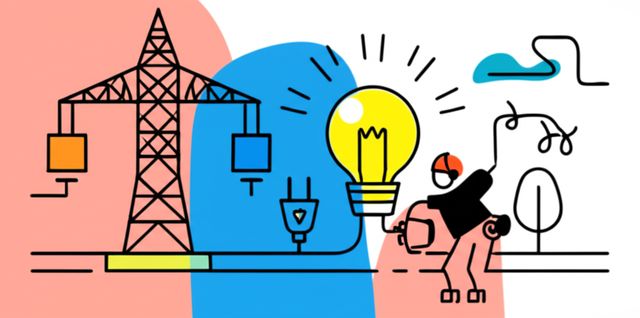Electrification
Electrification is the process of converting an energy system from one that is based on fossil fuels to one that is based on electricity. This can involve electrifying transportation, heating, and cooling systems, and industrial processes. Electrification has many benefits, including reducing greenhouse gas emissions, improving air quality, and increasing energy efficiency.
Why Learn Electrification?
There are many reasons to learn about electrification. Some people may be interested in learning about it to satisfy their curiosity about the future of energy. Others may be interested in learning about it because they are considering a career in the field of electrification. Still others may be interested in learning about it because they want to reduce their own carbon footprint.
How to Learn Electrification
There are many ways to learn about electrification. One way is to take an online course. There are many online courses available that cover a variety of topics related to electrification. These courses can be a great way to learn about the basics of electrification, as well as to explore specific areas of interest.
Benefits of Learning Electrification
There are many benefits to learning about electrification. Some of the benefits include:
- Reduced greenhouse gas emissions: Electrification can help to reduce greenhouse gas emissions by replacing fossil fuels with electricity. This can help to mitigate climate change.
- Improved air quality: Electrification can help to improve air quality by reducing emissions of air pollutants such as particulate matter and nitrogen oxides. This can improve public health.
- Increased energy efficiency: Electrification can help to increase energy efficiency by using electricity more efficiently than fossil fuels. This can save money and reduce energy consumption.
- Career opportunities: The field of electrification is growing rapidly, and there are many career opportunities available for those with knowledge and skills in this area.
Careers in Electrification
There are many different careers available in the field of electrification. Some of these careers include:
- Electrical engineer: Electrical engineers design, develop, and maintain electrical systems. They may work in a variety of industries, including transportation, manufacturing, and construction.
- Power engineer: Power engineers design, develop, and maintain power systems. They may work for utilities, power generation companies, or other organizations that provide electricity.
- Energy efficiency engineer: Energy efficiency engineers help businesses and individuals reduce their energy consumption. They may work in a variety of settings, including consulting, manufacturing, and government.
- Policy analyst: Policy analysts develop and implement policies related to energy and environmental issues. They may work for government agencies, think tanks, or other organizations.
- Project manager: Project managers oversee the implementation of electrification projects. They may work for utilities, construction companies, or other organizations that are involved in electrification.
Personality Traits and Interests
People who are interested in learning about electrification may have the following personality traits and interests:
- Curiosity: People who are interested in learning about electrification are often curious about the future of energy and how it will impact our lives.
- Problem-solving skills: People who are interested in learning about electrification are often good at solving problems. They may enjoy taking on challenges and finding solutions to complex problems.
- Interest in technology: People who are interested in learning about electrification are often interested in technology. They may enjoy learning about new technologies and how they can be used to solve problems.
- Environmental concern: People who are interested in learning about electrification are often concerned about the environment. They may be interested in finding ways to reduce their carbon footprint and protect the planet.
Conclusion
Electrification is a rapidly growing field that offers many career opportunities for those with knowledge and skills in this area. By learning about electrification, you can gain a better understanding of the future of energy and how it will impact your life.


